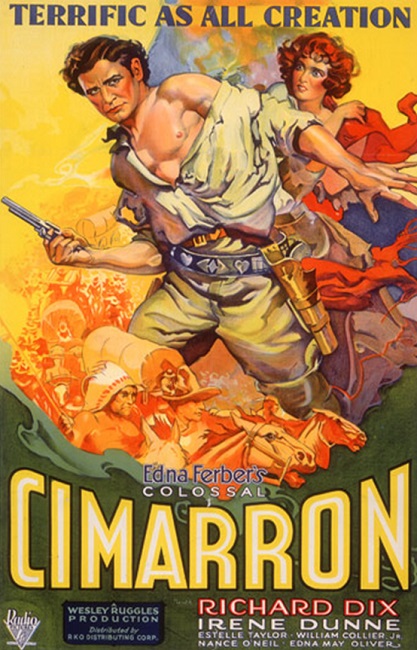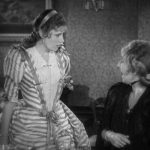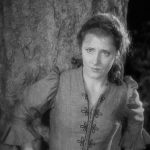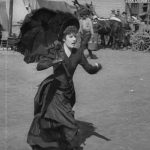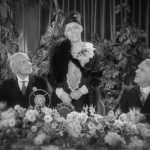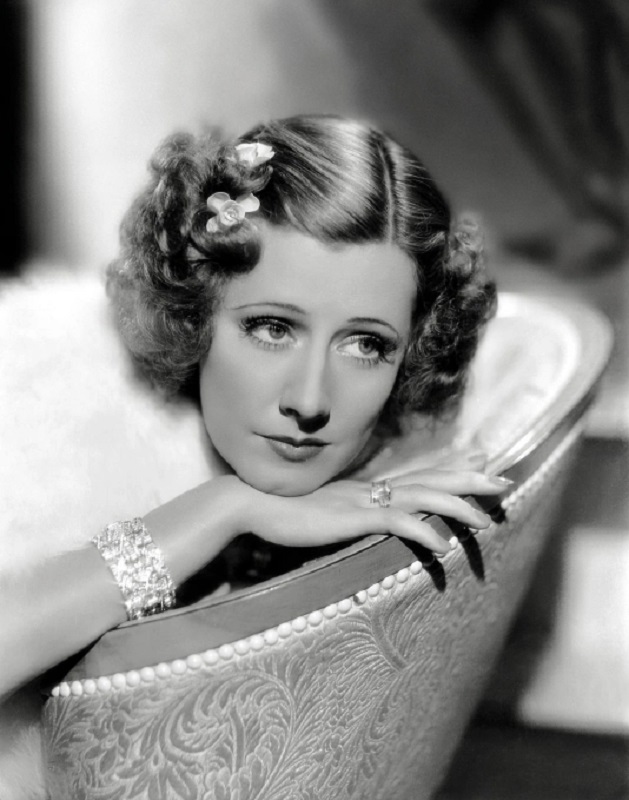

1931-32 – Irene Dunne
Cimarron
Irene Dunne really did a fantastic job in this film. This is my third time watching Cimarron, and each time I see it, I am reminded of the wonderful way in which she portrayed the character of Sabra Cravat. She was a woman in love with a man who had a severe case of wanderlust. He left her alone with her children most of the time, only to show up in brief erratic visits, during which he forcibly imposed his own views, noble as they were, on everyone around him.
First, Dunne had to deal with the physical characteristics of the progressing age of the character. Not only did makeup and costume changes show her getting older, but Irene’s movements and vocal performance sold it as well. As a young girl, she was outspoken and aggressive, though always subservient to her beloved husband. And by the time Sabra was a white-haired old lady, her movements were slower, her glances more wise and calm, a trait that only the more experienced in life can possess. And Dunne played it all with confidence and skill.
But I also have to say that upon watching it for the third time, I have to praise Dunne’s use of facial expressions. At times, she had the ability to say more with her eyes and her demeanor than with her voice. She didn’t have the natural ease of presence that her fellow nominee Norma Shearer had, but she did have an air of practiced precision about her that left no doubt as to what she was trying to portray in the character. There was one scene in which she really showed off her skills as an actress. It was the courtroom scene, where Sabra’s husband defies her, and argues passionately on the side of the town hussy, whom Sabra wants to convict. Her look of self-righteous anger and indignation were perfect.
Really, I have to admire Dunne’s performance in Cimarron more than her leading man, Richard Dix’s. True, Dix was also nominated for Best Actor, but Dunne was the real star of the film, The story was Sabra’s story, and she carried the movie. The character had an arch, starting off one way, with attitudes of racism and superiority. But by the end, she grudgingly changed her views to ones of acceptance and graciousness, and Dunne was the one who brought that arch to life.
